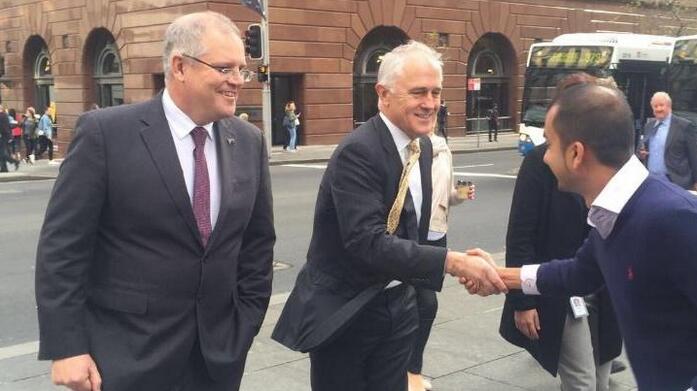Canadian Prime Minister Mark Carney has thrown down a very interesting message at the 2025 G20 Johannesburg Summit.
The openly anti-Trump leader has not shied away from skewering the current administration over tariff issues between the two countries. But now, he’s taken his criticism to the floor of one of the most prestigious events in the world.
Trump recently pulled the US out of the summit, citing his objections to the host nation over contested claims about land-rights of Afrikaner farmers.
South Africa still proceeded to publish a summit declaration, despite Washington’s warning that only a chairman’s summary should be released.
Appearing at the event over the weekend, Carney boldly suggested that the world can advance just fine without the United States in the engine room.
His remarks signal a potential fracture in what has long been viewed as one of the fundamental bedrocks of Western global leadership.
“The summit … brought together nations representing three-quarters of the world’s population, two-thirds of global GDP and three-quarters of the world’s trade, and that’s without the United States formally attending,” Carney told reporters.
“It’s a reminder that the centre of gravity in the global economy is shifting.”
Carney doubled down and insisted that Canada is not particularly locked into the old formula of relying on the US for economic and security leadership. He pointed to a $70 billion (A$76 billion) investment pledge from the UAE into Canada and laid out ambitions for new trade and investment ties in the Indo-Pacific and Europe.
“I’ll speak to (Trump) again when it matters,” he added. “I don’t have a burning issue to speak with the president about right now. When America wants to come back and have the discussions on the trade side, we will have those discussions.”

Canada’s Prime Minister Mark Carney arrives for the second day of the G20 Leaders’ Summit, in Johannesburg, South Africa. (Marco Longari/Pool Photo via AP)

Trump recently pulled the US of the summit, citing his objections to the host nation over contested claims about land-rights of Afrikaner farmers.
Analysts have been warning for some time that the US’s retreat from traditional leadership roles is forcing allies to reconsider longstanding arrangements.
Earlier this year, The Washington Post famously declared that the Trump era has coincided with a tectonic shift — that the US was no longer the lone top dog atop the global pyramid.
Allan Behm, an analyst at the Lowy Institute, echoed those sentiments.
“It is breathtaking just how quickly Donald Trump’s recklessness has eroded the US position in the world,” he wrote in his report The decline of US global leadership: Power without authority.
It aligns with an emerging theory that the world has become a “multiplex order,” where global institutions and partnerships are no longer anchored in Western leadership alone.
It is impossible to nail exactly how this shift occurred, but the rise in cheap and accessible technology has done a lot in recent years to bring longtime “second-world nations” ahead in the economic race.

Carney doubled down and insisted that Canada is not particularly locked into the old formula of relying on the US for economic and security leadership. (Photo by PATRICK DOYLE / AFP)

‘It is breathtaking just how quickly Donald Trump’s recklessness has eroded the US position in the world.’ (Photo by SAUL LOEB / AFP)
In Canada’s case, Carney has actually declared that the old Canada-US, relationship based on deep economic integration and security co-operation “is over.”
For Australia and regional powers, Carney’s stance is an early warning that the era of unquestioned US global stewardship may be drawing to a close.
Like Canada, other countries may accelerate efforts to diversify trade and investment partners, reducing single-point dependence on Washington.
When G20 or G7 summits can proceed with minimal US involvement and still claim legitimacy, the structure of global diplomacy shifts.
This is why risk-averse analysts are wary of Trump, who has time and time again shown that he is more than happy to throw out the rulebook on international diplomacy if he believes it is best for the US.
‘A rupture’: Carney smashes ‘protectionism’
At the close of the summit, leaders at the G20 hailed multilateralism, even as they struggled to adapt to a changing world order beset by go-it-alone US policies, wars and deepening geopolitical rivalries.
“Too many countries are retreating into geopolitical blocs or the battlegrounds of protectionism,” Carney said.
He added: “We are not experiencing a transition, but a rupture.”
He and the other leaders at the summit held a searching discussion on how the G20 can survive in a fragmenting world.
South African President Cyril Ramaphosa said, just before bringing the gavel down on the summit, that the meeting took place “at a crucial time, as calls around the world grow louder for progress on the imperatives of our time”.
Despite challenges to international cooperation, Ramaphosa said a joint declaration by G20 leaders issued early in the meeting “reaffirms our renewed commitment to multilateral cooperation and our recognition that our shared goals outweigh our differences”.
Dozens of leaders from key economies around the world — including Europe, China, India, Japan, Turkey, Brazil and Australia — attended the summit, the first to be held in Africa.
In their G20 statement, they said their meeting was held “against the backdrop of rising geopolitical and geo-economic competition and instability, heightened conflicts and wars, deepening inequality, increasing global economic uncertainty and fragmentation”.
French President Emmanuel Macron on Saturday warned that “the G20 may be coming to the end of a cycle”.
Noting difficulties in finding a common stance on conflicts around the world, he argued it should refocus just on strategic economic issues going forward.

Leave a Reply